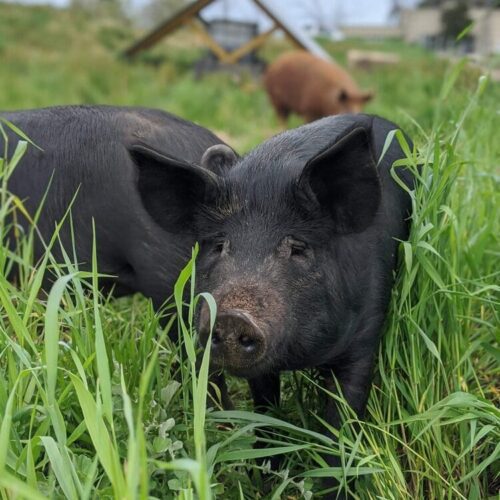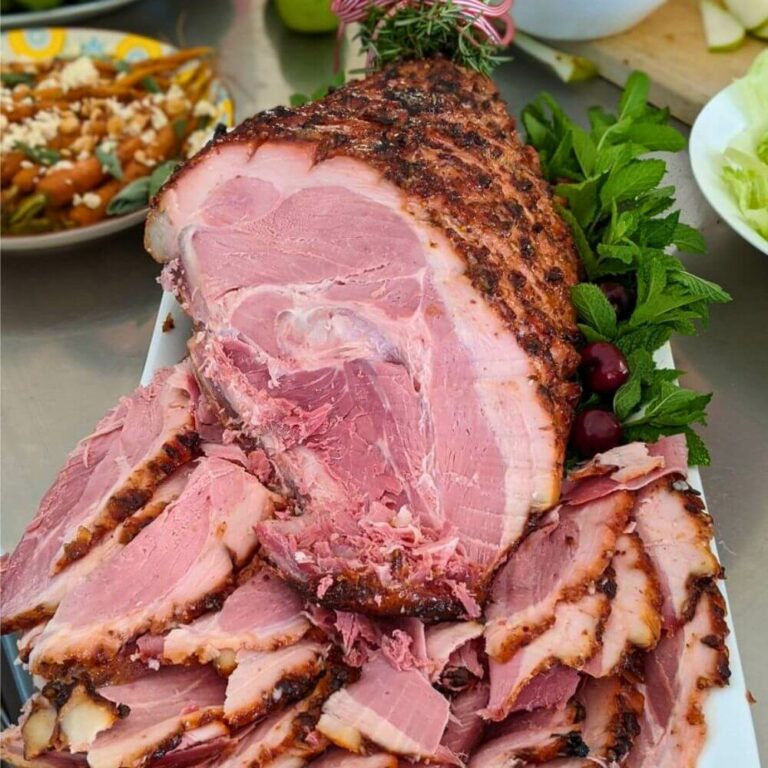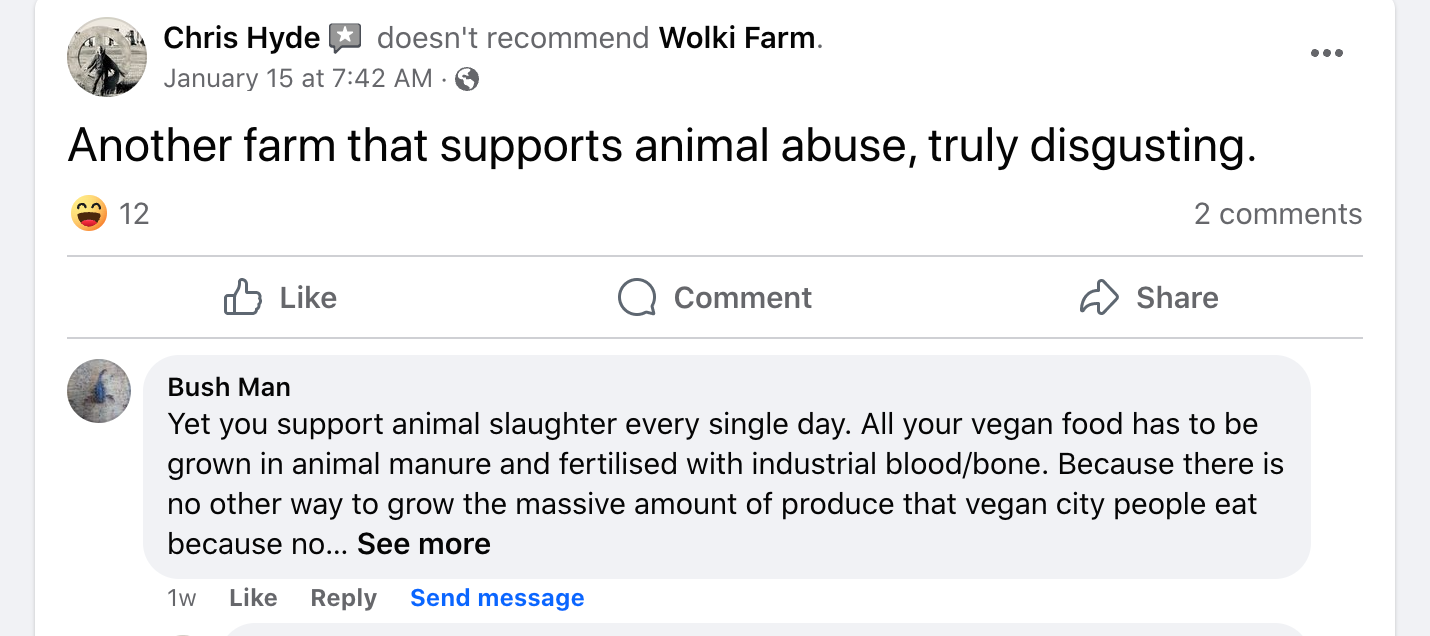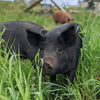FURTHER READING
-

, by Jacob Wolki Veganism
-

, by Jacob Wolki Ham BANNED in schools!
-

, by Jacob Wolki Haters, trolls and vegans

"The fact that we can articulate what a 'clean kill' might be, and why we believe it is important, lives right next door to the idea that 'no kill would be the cleanest of all'. "
-----
2 vegetarians called me this week, wanting to discuss meat production.
They both needed to introduce meat protein into their diet (their words) but are struggling to reconcile production - namely slaughter - with their values.
I get these phone calls often and in the back of my head I’m wondering if it’s an activist vegan looking to record a conversation with a “bloodthirsty farmer”, or grab a soundbite that would go viral on TikTok.
Regardless, and against advice, I enter these conversations in good faith and am ready to defend my thoughts in the marketplace of ideas.
Both callers specifically wanted to discuss slaughter. The final day. It is a very emotionally charged subject, and rightly so. These animals of ours don't deserve cruel treatment, especially on their final day.
Even after the animal is slaughtered, I still believe that we should be treating their carcass, and meat, with dignity and respect.
A sign of our appreciation and value.
I briefly described the slaughter methods used in the abattoirs that service Wolki Farm.
These methods are not anything special in the Australian landscape as this is a very regulated space.
Sheep and cattle are stunned between the eyes with a captive bolt, rendering them unconscious before they are bled out - which is an important step in the process.
Pigs are lowered into a carbon dioxide pit. This is presumably one of the most emotionally charged methods in the industry and has recently been under a lot of exposure and pressure in the public eye. I’m not entirely sure how I feel about it, especially when taking into account the alternatives.
Bolting pigs is tricky as they are low to the ground, very strong and fast, and don’t really have necks that can be used to briefly restrain them.
The reason that I am more open minded to the carbon dioxide pit is from my experience of building our chick brooder in 2023.
I wanted to use gas lamps to provide the heat for my chicks, as I didn’t have mains power nearby and I liked how immediate the heat from gas was.
Following some research, I spoke to another farmer who cautioned me against it. He explained that if there was a fault in a gas line, the carbon dioxide can quickly fill up the atmosphere.
This would render all my animals - and any nearby staff - unconscious and then suffocate them. Without warning or alert.
Remember the canary in the coal mine?
The miners would lower a bird into a coal pit to test the air quality? Why wouldn’t the miners just go down and sniff it themselves? Because the moment they inhale the gas, they will be knocked out. Then they will suffocate and die, while sleeping.
This silent and effective killer is what the pig industry has innovated to service their slaughter needs.
Footage you may see or hear referenced to about screaming pigs in the ‘gondola’ is likely a result of rushed treatment, and pigs being forced into a tight space with each other, and the sudden movement of the gondola. I work with pigs daily. They are smart, strong and vocal.
I am not trying to diminish the reality of these animal’s final day, or to downgrade the weight of it, but to put it in perspective.
Back on my phone call, I reply “I understand the attention you're giving to the final day of these animals lives. But the typical beef animal going to slaughter will live 550 days. What about directing our focus and action to the 549 days?"
549 days of species appropriate grazing, socialisation, environmental stewardship and natural expression.
The final day is important, but it doesn't weigh more than the 549 days before it. It’s about perspective.
I’m empowering the people phoning me to stop getting so stuck on the final day, while still paying that process it’s due. There is plenty of discussion, oversight and debate around abattoir methods and welfare.
While I do have a dog in that race, I’m going to divert my efforts into pioneering and promoting better outcomes for each and every day that leads up to it.
“One bad day”, a phrase I heard by Joel Salatin.
Can we contrast this hopeful “One bad day” that a farm animal has against the “One bad day” that a wild animal has?
Surely, the life of a bonafide wild animal is the gold standard of lives?
How does a wild animal die, exactly? Old age? I’d love to know the data, I haven’t found anything especially thorough of convincing on this, but I would propose that the amount of animals in the wild that peacefully die of old age is a minute rounding error.
The reality is, that animals in the wild die from starvation, disease or predation.
You only have to watch a David Attenborough documentary to see the highlight reels of lions taking down a herbivore like a gazelle, and beginning to feast on it while it’s still alive and struggling to stand up and run away.
There is no dignity bestowed upon a wild animal by its peers and rivals.
But we do bestow dignity upon our animals.
We have many organisation who are interested in the welfare on animals throughout their life and up until it’s processing.
In reality, we eat meat. Vegans vs carnivores, and the passionate doctors associated on both sides, can argue until they’re blue in the face about what the most appropriate and healthy diet is, but 1 thing cannot be argued about with any shred of intellectual honesty. We do eat meat.
Just walk down the street, go to a food court, a supermarket, open a history book, travel to the ends of the Earth.
It is a species appropriate diet by every metric. We have thrived on it for as far back as our written history goes. It’s in our nature and it’s in our best interest. The fact we have the cognitive capacity to understand that our treatment of these animals affects the way they feel is very unique to us.
Something interesting in our continuously radicalised culture is the contrast between what’s trending and what’s reality. What I mean is that we are continuously signalled that veganism is an incredible diet.
It’s good for your health, it’s good for the planet, and it’s good for your morality. Some people seem to thrive on a meat free diet.
Maybe the are genetically lucky, or very disciplined, or fortunate to have access and resources to offset with supplements.
The truth is, all exclusion diets are good for us for a time. The majority of food we cut back on during an exclusion diet are super processed rubbish.
But I’ve had enough vegetarians and vegans come to my farm on a quest to repair their bodies to take these sweeping glorious claims as bedrock.
What about the epigenetic deterioration of our species? This will be the one of the great reckonings of the 21st century.
We are eroding the healthy of our progeny through neglecting our nature in the name of morality and indulging our gluttony with cheap, addictive, horrendous highly processed poison food.
On the flip side, what does our world or animal production look like in the worst corners?
Productions models currently exist - at large scale - that would turn me off eating meat.
China has pig factories that are 26 storeys tall and produces 1.2 MILLION pigs per year. We have cattle and sheep feedlots, with little to no shade, capable of holding tens of thousands of units per time. Many of my staff have worked in these facilities and all have stories to tell.
The manure lagoons, the poisoned groundwater, the stressed animals dealing with extreme weather events and no where to go - the list goes on.
To be clear - I don’t believe that the people who own and work in these facilities are cruel or mean people. I’m constantly attacked for publicly voicing my enthusiasm for pasture based models that honour animals, and implicitly criticising factory farm models - that don’t.
If I could only source protein from factory farms I would have a conundrum.
We must realise that the fact we can even articulate this, and visualise ulterior methods of sourcing nutrition, is an amazing privilege.
The fact that our society is even able to have the public debate of whether meat is species appropriate for humans shows how privileged our access to nutrition really is.
What is the attitude of developing nations towards consumption of meat, welfare standards, food hygiene and abattoir process?
We, and our animals, are so fortunate that our access to nutrition and energy is secure enough that we can have these finer detailed conversations around welfare and outcomes.
There is an element of nature denying and subtle, sometimes not-so-subtle, self loathing within the anti meat movement.
The lion fears no judgement and cares not for the gazelle that’s still kicking, while the lion takes its first bite. The maggots slowly consuming a live animal from its rotting wound don’t for a second concern themselves with their publicity or conscience.
The buffalo grazing on pasture does not blink for the insects, bugs, rodents and like that have their homes squashed and lives taken during its stampeding migration.
But we humans are acutely aware of our own morality. We know what pain and suffering is.
We project these concepts onto animals and humanise them - perhaps rightly so.
Subsequently, as our cultures and industries develop, we go above and beyond what the lion, the maggot and the buffalo do for animals destined for death.
Regardless that our society plans for a “clean kill”, and endeavours to reduce suffering in the pursuit of feeding ourself a historically accurate and needed diet, the anti-meaters weaponise this empathy against us.
The fact that we can articulate what a “clean kill” might be, and why we believe it is important, lives right next door to the idea that “no kill would be the cleanest of all”.
But here in lies the hypocrisy. A clean kill, honouring and respecting the animals life and contribution most of all, also honours our nature and our species appropriate role.
No kill at all denies our nature, the “not-so-subtle” self loathing aspect of veganism, not to mention the complicated environmental mess of monoculture grain, vegetable, fruit and fake milk production.
I'd love to know your thoughts in the comments.


